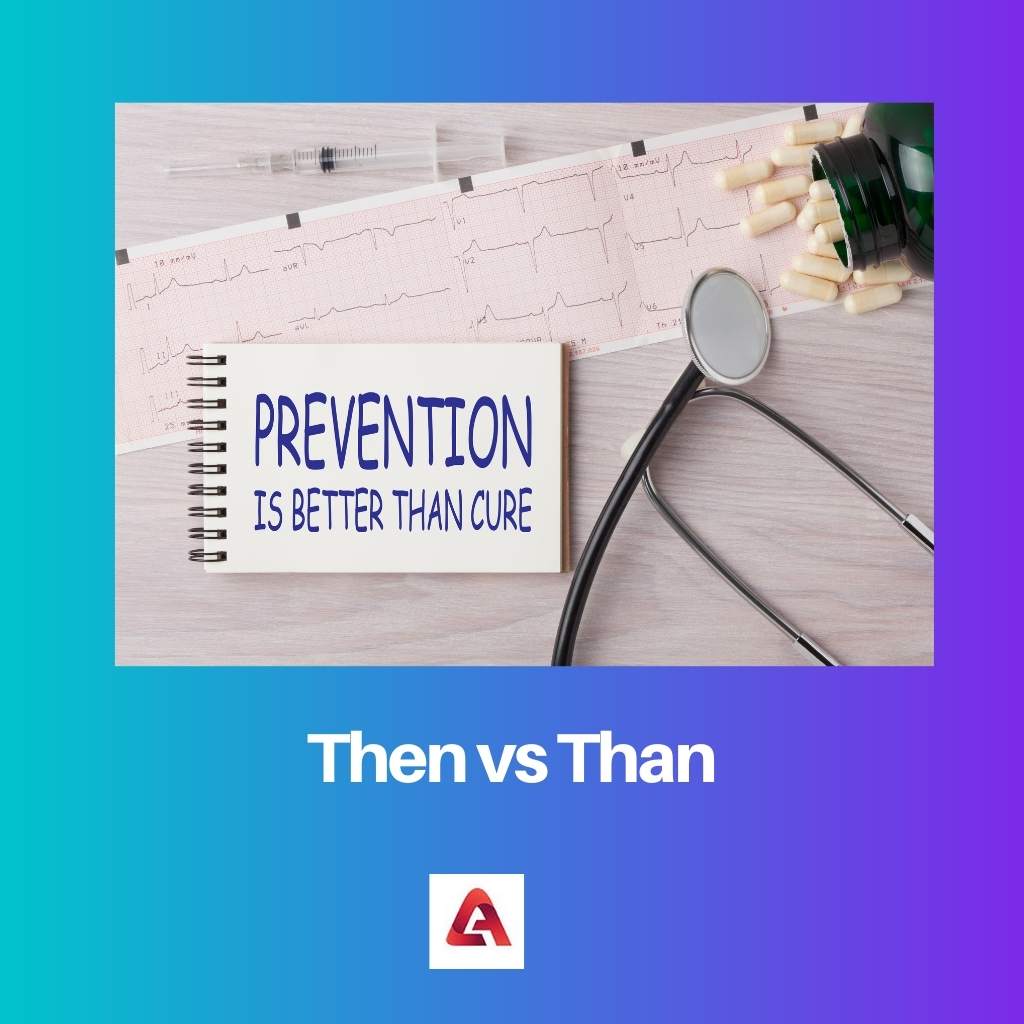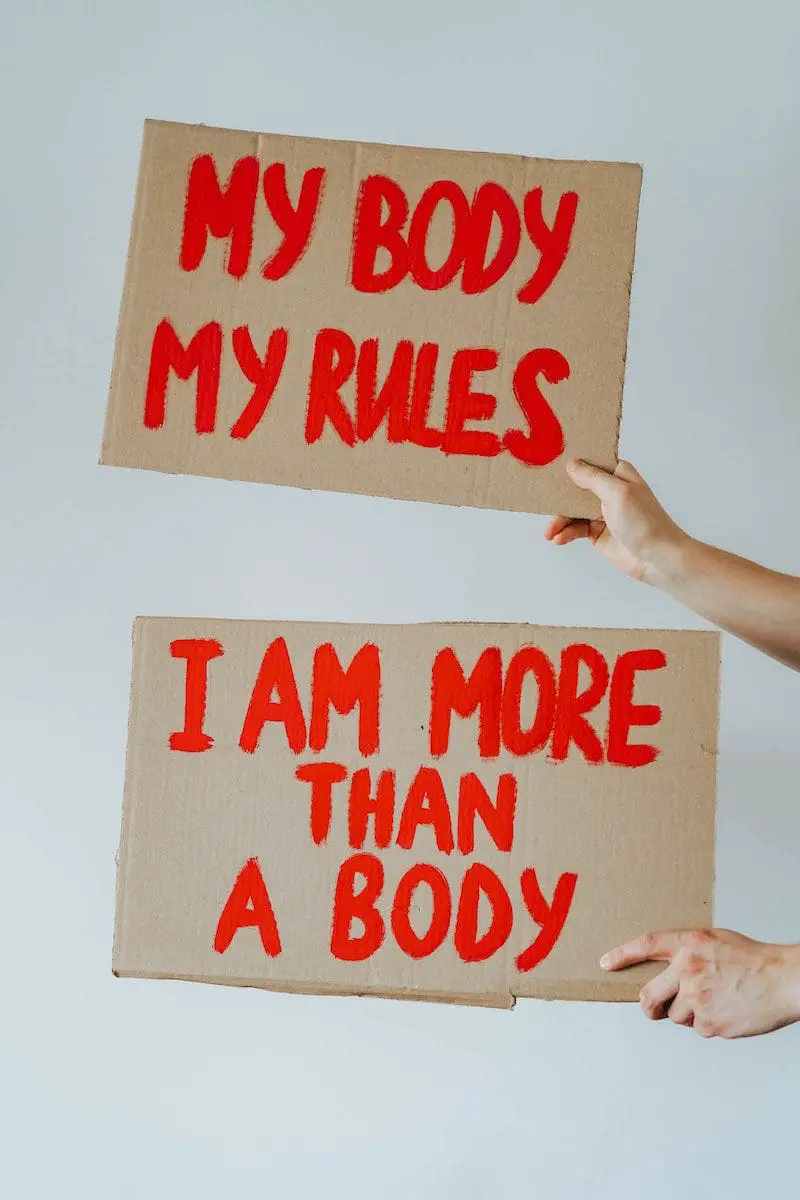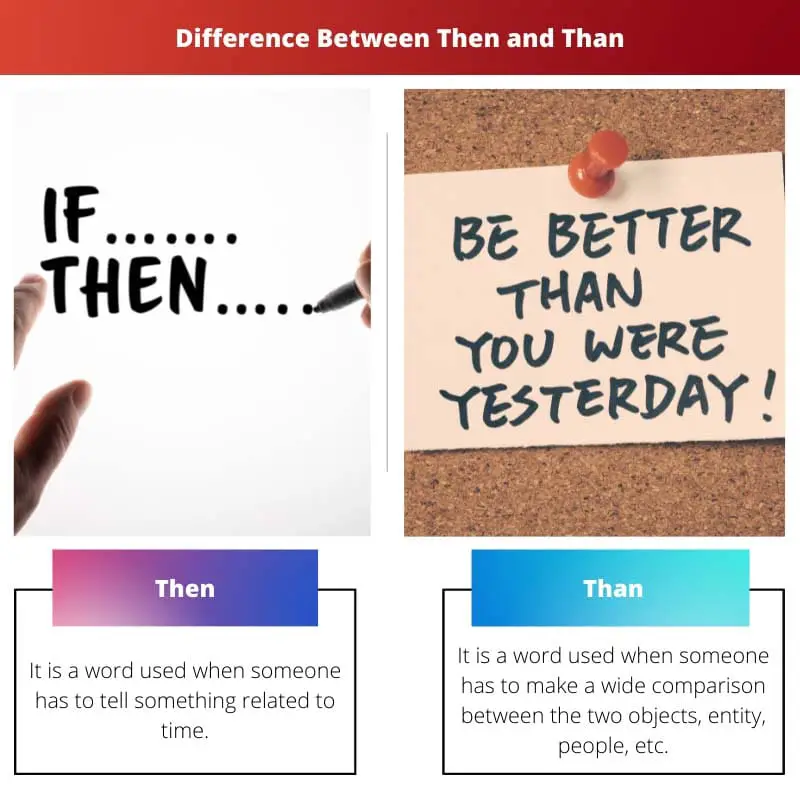The English language has many complexities but still is one of the most popular languages among everyone. English grammar comprises of many rules, theories, concepts, etc., which must have to be followed.
So, do Homophones are one of the parts of it? These are the two or many words that are spelt differently but are pronounced similarly. Some examples of homophones are accept-except, then-than, dye-die, addition-edition, haul-hall, heal-heel, hear-here, heard-herd, and many more.
Key Takeaways
- “Then” refers to a specific point in time or a sequence of events.
- “Than” is used to make a comparison between two things or people.
- “Then” is used to indicate a consequence of something, while “than” indicates a difference between two things.
Then vs Than
Then is used to refer to some event back in time. It is related to the time that could be past, present, or future. It is an adverb. Than is used to make comparisons between different things. Than can be called as connector as it connects two incomplete sentences. It is used as a conjunction.

The word Then is an adverb (words help describe the verbs) or adjective (words help describe the nouns). It is mainly used relative to any time in past, present, or future tense. Consider the example given – Go straight and then turn left. He used to holiday in New York as it was then known.
The word Than is a conjunction, i.e., words that unite two incomplete sentences or clauses to form a meaningful sentence. It is used mainly to make comparisons between two or more objects, people, etc.
The words associated with than are – more, less, bigger, shorter, slim, fat, and many more, which helps in building comparison. The word ‘than’ doesn’t have any synonym; thus, it is replaceable in a sentence or phrase.
Comparison Table
| Parameters of Comparison | Then | Than |
|---|---|---|
| Definition | Used in relative to time | Used to make comparisons |
| Usage | Adverb | Conjunction |
| Indicate | Used or means afterward, next, etc | The second element in the comparison. |
| Synonym | Afterward, next, subsequently | Irreplaceable |
| Example | We have to wait till then until she picks me up. | She is older than Ram. |
What is Then?
It is a word used when someone has to say something related to time. Except that it can be used when any afterwards or next to related comments are to be made. This will be explained below with examples later.
A sentence is used as an adverb (words helping in describing verbs) or an adjective (words helping in describing a noun). The word ‘then’ can be replaceable as it has many synonyms which can be used in a sentence instead of it, like – subsequently, next, afterwards, etc.
Some words associated with ‘then’ can be used while forming sentences, such as – back then, just then, since, until, even then, now and then, then some, etc.
Below are the examples based on the different situations where ‘then’ can be used –
Subsequently –
From here, go straight, turn left and then take a right turn.
The board meeting was held for three consecutive days and then concluded.
In that case –
If you have brushed your teeth properly, then you wouldn’t have any cavities.
If you feel upset about it, then why don’t you leave it back then?
Relative to time –
The work will be completed before then.
It was the responsibility of the captain back then to look after the strategies you have been playing with.

What is Than?
It is a word used when someone has to make a wide comparison between two objects, entities, people, etc.
It is used as a conjunction (which helps in joining two incomplete sentences, phrases, clauses, etc., into a single and complete sentence) or a preposition (words used before any noun or pronoun indicating time, place, location, etc.).
‘Than’ is a word that cannot be replaced by any other word in a sentence, as there are no synonyms for it. Thus, knowing is an irreplaceable word. It also indicates the second element with which the comparison is being made.
Some of the words associated with the word ‘than’ are – bigger than, smaller, greater than, smoother than, further than, etc. Sometimes other, rather, less, more, etc., such words are also used among with it.
Some of the examples associating the word ‘than’ are given below –
I like fruits more than I like fruit juices.
She is smaller than Riya.
Amanda has more money than Rahul has.
Raghav runs faster than Mehul.

Main Differences Between Then and Than
- The word Then is used in a sentence relative to time, while the word Than is used to make comparisons between the two things in a single sentence.
- The word Then is an adverb, while the word Than is a conjunction.
- The word Then means afterwards, next, or sometimes just in case, etc., whereas the word Than is used to indicate the second element of the comparison.
- The word Then has many synonyms, just like – afterwards, subsequently, next, etc., whereas the word Than doesn’t have any synonym to replace it; thus, it is irreplaceable.
- An example for the word Then is – I poured a glass of water and then sat down to drink it while considering the example for the word Than it is as follows – I like chocolates more than cakes.

References
- http://web.cs.iastate.edu/~sbasu/course/Sem-Web-Seminar/slides.pdf
- https://www.bmj.com/content/326/7382/219.full.pdf+html

This article was incredibly informative. It helped me grasp the differences between ‘then’ and ‘than’ in a better way.
I thoroughly enjoyed the examples provided for ‘than’. It was a great way to understand and remember the usage.
I found the section on ‘then’ as a word used in relation to time particularly helpful. Thank you for shedding light on these nuances.
The distinction between ‘then’ as an adverb or adjective, and ‘than’ as a conjunction was well-explained. It was quite insightful.
I agree. The article’s attention to detail was commendable.
Absolutely. It was an intellectually stimulating read.
The word association in both ‘then’ and ‘than’ sections was quite enlightening. Thanks for this enlightening piece.
I share the same sentiment. The content was detailed and thought-provoking.
I enjoyed reading the detailed comparison between ‘then’ and ‘than’. It’s enlightening.
Absolutely! It’s always great to delve into the nuances of the English language.
I couldn’t agree more. The clear examples provided made it easier to understand the distinctions.
The comparison table was particularly helpful in summarizing the key differences. Thank you!
The examples provided for both ‘then’ and ‘than’ made the differences vividly clear. Thanks for the insightful content.
Thanks for the comprehensive explanation about the differences between ‘then’ and ‘than’. I found it really helpful.
You are welcome. I appreciate the informative content shared in this article.
I appreciate the detailed examples provided for both ‘then’ and ‘than’. It made the learning process more engaging.
I couldn’t agree more. The examples really contributed to my understanding of this topic.